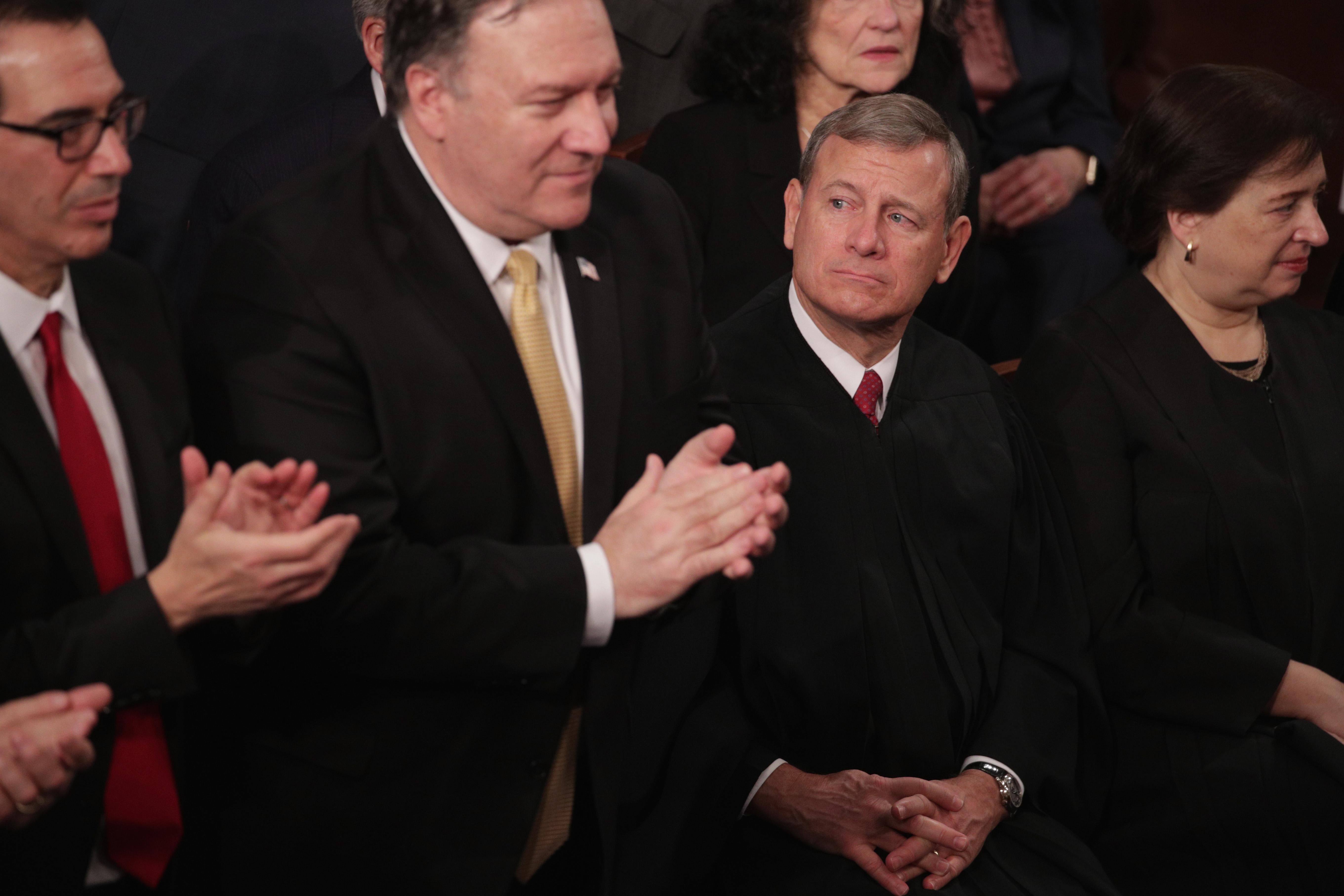The Supreme Court blocked the addition of a citizenship question to the 2020 census on Thursday, ruling that the Trump administration failed to provide a genuine explanation for the question’s insertion. Its decision is deeply divided, but Chief Justice John Roberts’ core holding requires the Commerce Department to devise a better, more truthful explanation for its modification of the census. Yet there is simply no time for the agency to do so, according to the deadlines it proffered in court. Thus, it appears that the citizenship question is probably dead.
Secretary of Commerce Wilbur Ross, who oversees the Census Bureau, maintained that a citizenship question was necessary to better enforce the Voting Rights Act. Civil rights advocates insisted that this justification was mere pretext and that the question’s real purpose was to provoke a massive undercount of Hispanics and immigrants, who are less likely to respond to a census that asks about citizenship. This undercount, in turn, would strip representation from diverse and immigrant-heavy regions, thereby entrenching Republican power.
These advocates compiled a mountain of evidence to back up their claim that Ross had lied. For instance, there is ample proof that Ross asked the Justice Department to devise a reason—any reason—for the 2020 census to incorporate a citizenship question. When it initially failed to do so, he threatened to pull rank and call in then–Attorney General Jeff Sessions. Eventually, DOJ officials crafted an unpersuasive letter explaining why a citizenship question would aid VRA enforcement.
This mad scramble for pretext created a legal problem. Under the Administrative Procedure Act, any agency action that is “arbitrary and capricious” violates the law. Moreover, at a minimum, an agency must “disclose the basis” of its action so courts can review its legality. In the key section of his decision on Thursday, Roberts wrote that a district court was correct to hold that Ross failed to disclose the real basis of his action here. He reviewed all the evidence gathered by the district court, including discovery that went beyond the administrative record—“which showed, among other things, that the VRA played an insignificant role in the decisionmaking process.” Roberts explained:
The record shows that the Secretary began taking steps to reinstate a citizenship question about a week into his tenure, but it contains no hint that he was considering VRA enforcement in connection with that project. The Secretary’s Director of Policy did not know why the Secretary wished to reinstate the question, but saw it as his task to “find the best rationale.” The Director initially attempted to elicit requests for citizenship data from the Department of Homeland Security and DOJ’s Executive Office for Immigration Review, neither of which is responsible for enforcing the VRA. After those attempts failed, he asked Commerce staff to look into whether the Secretary could reinstate the question without receiving a request from another agency. The possibility that DOJ’s Civil Rights Division might be willing to request citizenship data for VRA enforcement purposes was proposed by Commerce staff along the way and eventually pursued.
Even so, it was not until the Secretary contacted the Attorney General directly that DOJ’s Civil Rights Division expressed interest in acquiring census-based citizenship data to better enforce the VRA. And even then, the record suggests that DOJ’s interest was directed more to helping the Commerce Department than to securing the data.
“Altogether, the evidence tells a story that does not match the explanation the Secretary gave for his decision,” Roberts concluded. “We are presented, in other words, with an explanation for agency action that is incongruent with what the record reveals about the agency’s priorities and decisionmaking process.” Thus, Roberts held that the district court “was warranted” in telling the agency it failed to provide a lawful justification for the citizenship question. He held, however, that the action was not “substantively invalid,” and gave the Commerce Department an opportunity to provide a better rationale.
Theoretically, then, Ross can still find a way to insert the question into the census. But two factors work against him. First, the Trump administration has repeatedly told the courts that it must begin printing the census forms on June 30. It presented this deadline as essentially non-negotiable, apparently hoping to pressure SCOTUS into quickly upholding the question. That tactic may have now backfired, because the administration must print the forms in three days or else reveal it was lying about its timeline. (Census officials have said that the printing could be delayed until October, though that still may not leave the government enough time.)
Second, it will be difficult for Ross to devise a lawful justification for the citizenship question now that this case has laid out his plainly discriminatory motives. Even if he did come up with a half-plausible reason, it would still have to clear the courts, a process that would take months. Those are months the government doesn’t have. Trump officials bet everything on SCOTUS, and now SCOTUS has sent them back to the drawing board. It seems the administration just won’t have time to add the citizenship question in a legal manner.
Thursday’s decision is complex and, at times, confusing. The liberal justices wrote separately to declare that the citizenship question should be blocked altogether as illegally “arbitrary and capricious.” The conservative justices wrote separately to assert that the court should afford more deference to the Commerce Department—an argument that reaches the heights of hypocrisy, especially in light of their recent assault on judicial deference to agencies. So neither bloc got exactly what it wanted. But make no mistake: Roberts’ compromise gives the liberals a qualified victory, one that should keep the citizenship question off the 2020 census. Ross’ own incompetence appears to have doomed his discriminatory scheme.
